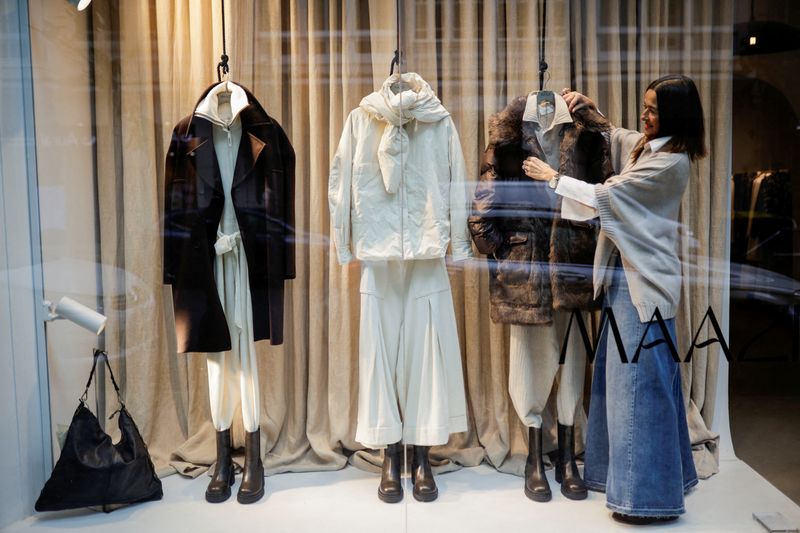By Jacob Gronholt-Pedersen
Copenhagen (Reuters) - The European Commission wants all planned regulations requiring fashion companies to produce clothes in a more sustainable way to be in place by 2028, the EU environment commissioner said on Tuesday.
The Commission is looking to tackle textile consumption in Europe, which has the fourth highest impact on the environment and climate change after food, housing and transport.
Europe's biggest fast fashion firms Inditex (BME:ITX) and H&M show no signs of slowing down production, but are looking to use less water and energy and more recycled textiles.
"The fashion industry has kind of escaped regulation, but we see that they are a big pressure for natural resources and with regard to pollution. We have to react," Virginijus Sinkevičius said in an interview at the Global Fashion Summit in Copenhagen.
The Commission is drafting at least 16 pieces of legislation that will make fashion companies take responsibility for the environmental impacts of the clothes they produce.
'CHALLENGE' FOR FAST FASHION
Sinkevičius said the measures, which will be in place in the next 5 years, will be a "challenge" for fast fashion brands.
The Commission will require fashion companies to either collect an amount of textile waste that is equivalent to a certain percentage of their production, or pay a fee towards local authorities' waste collection work.
The amount will gradually increase every few years.
The Commission is still working on an initial percentage that fashion companies will have to collect.
"It definitely will be higher than 5%" of production, Sinkevičius said.
The European Union's goal is that, by 2030, fashion companies will produce more durable pieces that can be reused and more easily recycled.
Around 5.8 million tonnes of textile products are discarded every year in the EU, equivalent to 11 kg (24 lb) per person. A truckload of textile products is land-filled or incinerated somewhere in the world every second, according to EU figures.
The Commission is also working on regulations that would restrict brands' use of sustainable claims to advertise clothing. It estimates that half of these claims, or "eco-labels" are misleading.
The eco-label regulation on textiles will come into force at the beginning of next year, the commissioner said.

EU governments agreed last month that the bloc should also ban the destruction of unsold textiles as part of the EU's green strategy to encourage more reuse and recycling.
Sinkevičius said the ban rule would take "six months or even more" to be implemented.